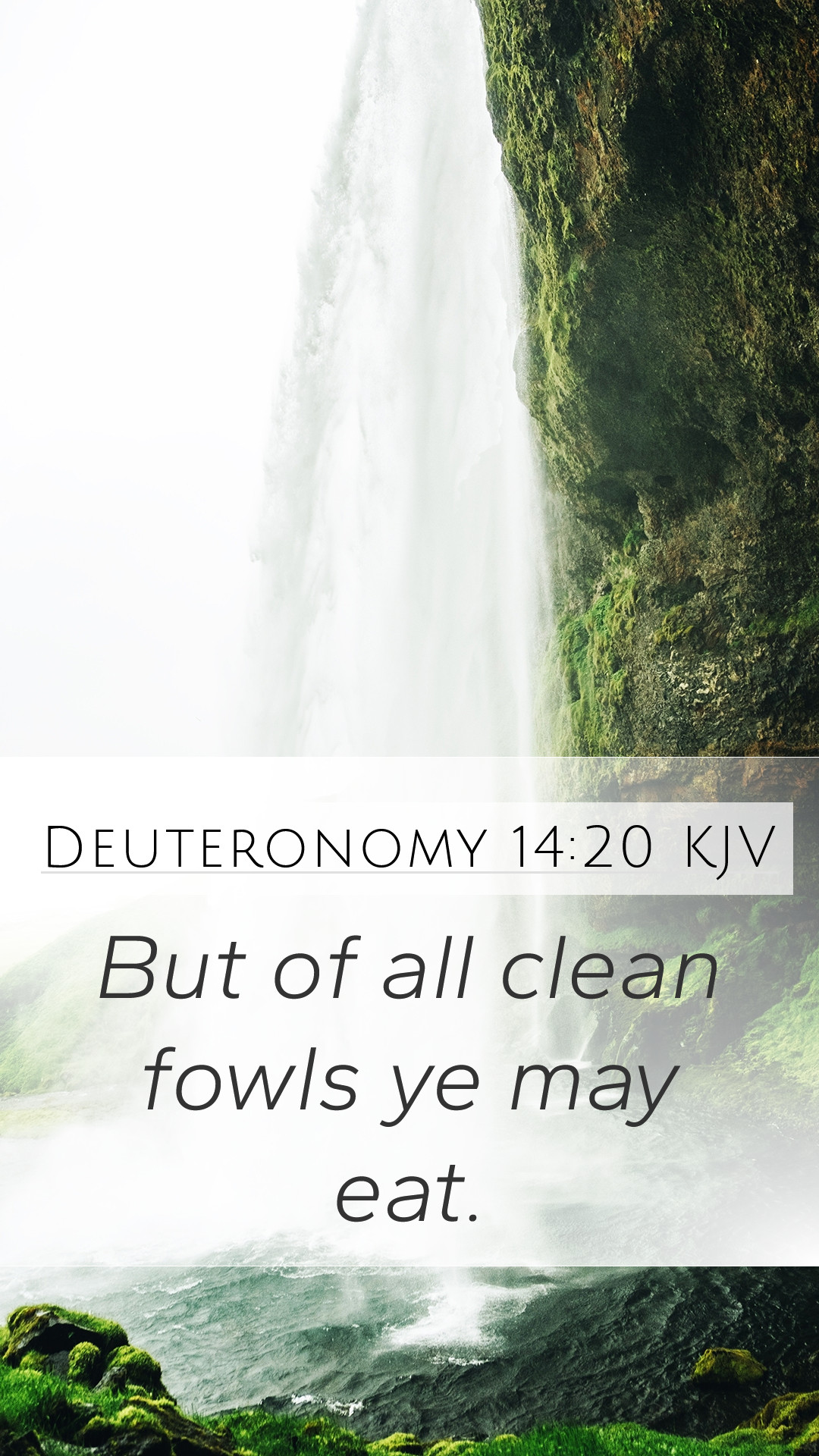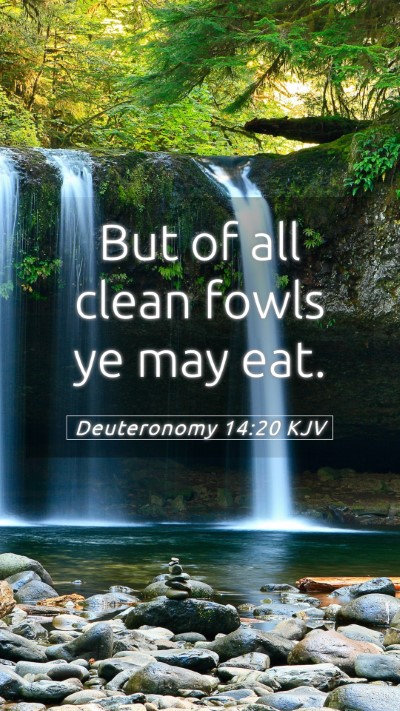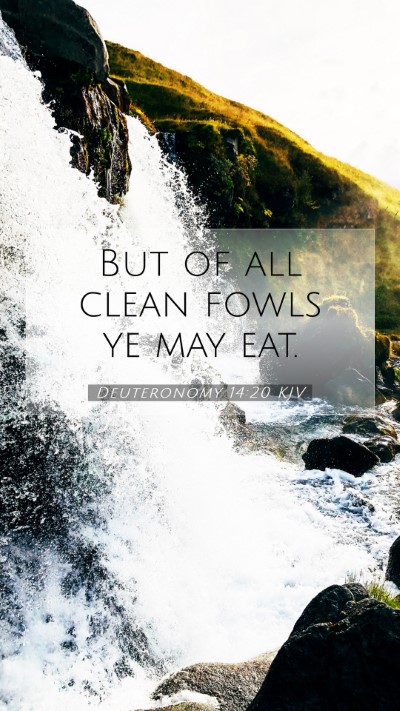Understanding Deuteronomy 14:20
This commentary provides an insightful exploration of Deuteronomy 14:20, enhancing your bible verse understanding and interpretations through a synthesis of remarks from revered public domain commentaries, including contributions from Matthew Henry, Albert Barnes, and Adam Clarke.
Bible Verse Context
Deuteronomy 14:20 states: "But of all clean fowls ye may eat." This verse appears within a passage where God outlines dietary laws for the Israelites, emphasizing the importance of holiness and discernment concerning what they consume. The overarching theme focuses on the separation of the people from pagan practices by adhering to specific divine guidelines.
Verse Meaning and Analysis
The insights of Matthew Henry emphasize that the dietary regulations were not mere restrictions but served as a means for the Israelites to express their dedication to God’s commandments. This verse affirms that while they are permitted to consume clean birds, there remains an expectation to adhere to God’s standards when selecting provisions.
- Holiness of God's People: The act of discerning what is clean or unclean represents a spiritual discipline intended to cultivate holiness amongst God’s people.
- Principles of Moral and Ceremonial Law: Albert Barnes points out that these laws are embedded within a broader moral framework, symbolizing obedience to God’s covenant and the aim to maintain purity.
- God's Sovereignty: Adam Clarke suggests that these dietary laws reflect God’s authority not only over the people’s spiritual lives but their physical sustenance as well.
Key Themes from the Verse
- Discernment: The ability to distinguish between what is clean and unclean can be viewed as a practical application of spiritual discernment in both ancient and modern contexts.
- Community Identity: The laws served not only as individual guidelines but as a means to forge community identity and cohesiveness among the Israelites.
- Obedience and Faith: Observing these dietary regulations was a tangible expression of faith and an act of obedience that affirmed their covenant relationship with God.
Application in Modern Life
In seeking bible study insights and understanding Scripture, modern readers can reflect on this verse by examining what it means to pursue purity in their own lives. This passage may challenge believers to consider their own practices and the influences shaping their daily choices.
Practical Tips for Bible Study Groups
- Group Discussions: Engage in conversations about the significance of following God’s commands in contemporary settings.
- Online Bible Study: Utilize digital platforms to accessing diverse commentaries on Deuteronomy, and share varying interpretations.
- Bible Study Guides: Create study plans that help group members analyze dietary laws and their spiritual implications.
Cross References
- Leviticus 11:13-19 - Details of clean and unclean animals.
- Acts 10:12-15 - Peter's vision and the redefinition of clean and unclean.
- 1 Peter 1:16 - The call to holiness, referencing Leviticus.
Conclusion
In summary, Deuteronomy 14:20 invites believers to explore deeper themes of holiness, community identity, and spiritual discernment. Understanding this verse encourages its readers not only to obey God’s commands but to reflect on the broader implications of their lifestyles and choices.


